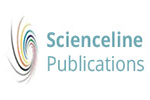(2022) Immunogenicity and Efficacy of a Bivalent Inactivated Vaccine against Rabbit Hemorrhagic Disease Virus. World's Veterinary Journal. pp. 266-273. ISSN 2322-4568
|
Text
WVJ 12(3), 266-273, September 25, 2022.pdf - Published Version Download (321kB) |
Abstract
Rabbit hemorrhagic disease is a fatal threat to rabbits that causes sustainability problems and substantial economic losses. The aim of the current study was to compare the immuno-enhancing effects of a bivalent inactivated rabbit hemorrhagic disease virus (RHDV) vaccine adjuvanted with Montanide with an inactivated RHDV vaccine with an aluminum hydroxide gel. Montanide incomplete seppic adjuvant 71 VG was prepared as an oil emulsion, and several batches adjuvanted with an aluminum hydroxide gel were prepared. Then, 250 New Zealand rabbits aged 6 weeks were randomly allocated to three groups. Group 1 was subjected to the bivalent inactivated RHDV adjuvanted with an aluminum hydroxide gel, Group 2 received the oil-emulsion vaccine adjuvanted with Montanide, and Group 3 was left unvaccinated as a negative control group. Efficacy was determined using a hemagglutination inhibition test, and resistance was determined using virulent RHDVa and RHDV2. The clinical signs included sudden death, nervous manifestations, aimless running, lateral recumbence, and crying before death. The mortality rates were recorded at 3 weeks, 3 months, 6 months, and 12 months after vaccination. In addition, blood samples were collected on the first day as well as 1, 2, 3, 4, 6 weeks post-vaccination (WPV), and 2, 3, 4 month post-vaccination (MPV) until 12 MPV. Serological analysis indicated that the bivalent inactivated RHDV oil-emulsion vaccine was more effective than the bivalent inactivated RHDV aluminum hydroxide gel vaccine, resulting in improved immune responses and longer-lasting protective immunological responses in vaccinated rabbits. The bivalent inactivated RHDV oil-emulsion vaccine was also sterile and safe and helped the protection of the rabbits against RHDVa and RHDV2, hence reducing the time and effort required during the vaccination process and reducing the levels of discomfort for the rabbits. © Nikkhah A and Alimirzaei M (2022). Colibacillosis and Colisepeticemia in Newborn Calves: Towards Pragmatic Treatment and Prevention. World Vet. J., 12 (3): 230-236. DOI: https://dx.doi.org/10.54203/scil.2022.wvj29
| Item Type: | Article |
|---|---|
| Keywords: | Immunity; Inactivated vaccine; Oil emulsion; Rabbit hemorrhagic disease virus |
| Subjects: | Q Science > Q Science (General) S Agriculture > SF Animal culture |
| Divisions: | World's Veterinary Journal (WVJ) |
| Page Range: | pp. 266-273 |
| Journal or Publication Title: | World's Veterinary Journal |
| Journal Index: | Scopus |
| Volume: | 12 |
| Number: | 3 |
| Publisher: | Scienceline Publication, Ltd |
| Identification Number: | https://doi.org/10.54203/scil.2022.wvj33 |
| ISSN: | 2322-4568 |
| Depositing User: | Dr. Alireza Sadeghi |
| URI: | http://eprints.science-line.com/id/eprint/663 |
Actions (login required)
 |
View Item |

